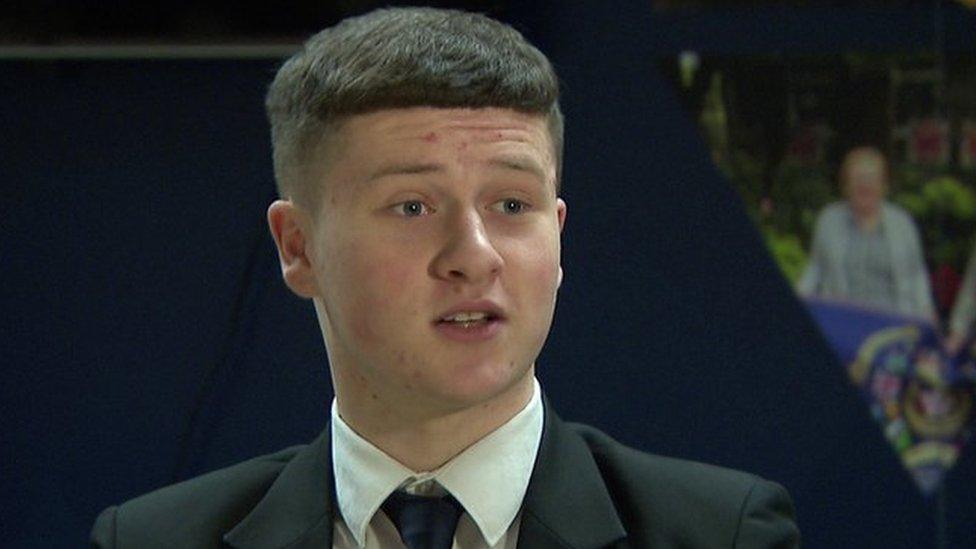'School didn't suit me - but youth club learning does'
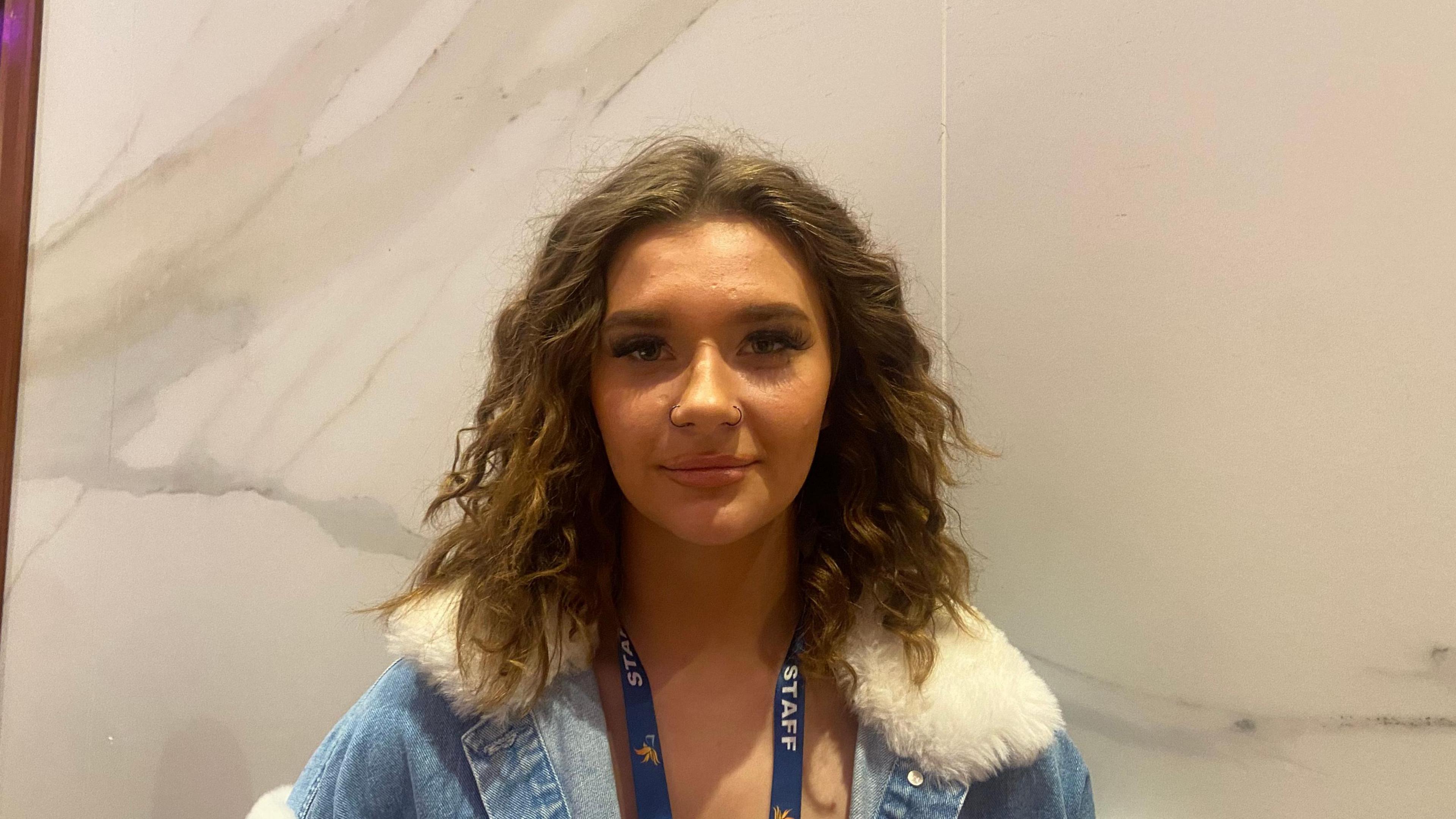
Victoria Black said she wasn't able to leave the house for two years but has found a different style of education and learning
- Published
A group of young people in east Belfast have called for more support for education in youth clubs.
They are members of Phoenix Education Centre, a group that aims to tackle educational underachievement in the area with a community-led approach.
They maintain that school isn't for everyone and that centres like this could help others who struggle with mainstream education.
Underachievement in education has remained "entrenched" in Northern Ireland, despite significant funding and policies to tackle it, according to former Education Minister Peter Weir.
Issues such as poverty, social class disparities, criminal recidivism and housing challenges are highly present in east Belfast which Phoenix Education Centre is hoping to improve.
As part of the centre's initiative, young people undergo Open College Network (OCN) classes including English and Maths, but also take part in mental health and fitness classes.
In the 'New Decade, New Approach' agreement there was a requirement that the executive establish "an expert group to examine and propose an action plan to address links between persistent educational underachievement and socio-economic background, including the long-standing issues facing working-class, Protestant boys".
The Fair Start report was commissioned by the Department of Education and published in 2021.
It said £180m should be spent over five years to tackle educational underachievement.
But the education budget for 2023-24 was cut, forcing a number of schemes aimed at children from disadvantaged areas to be axed.
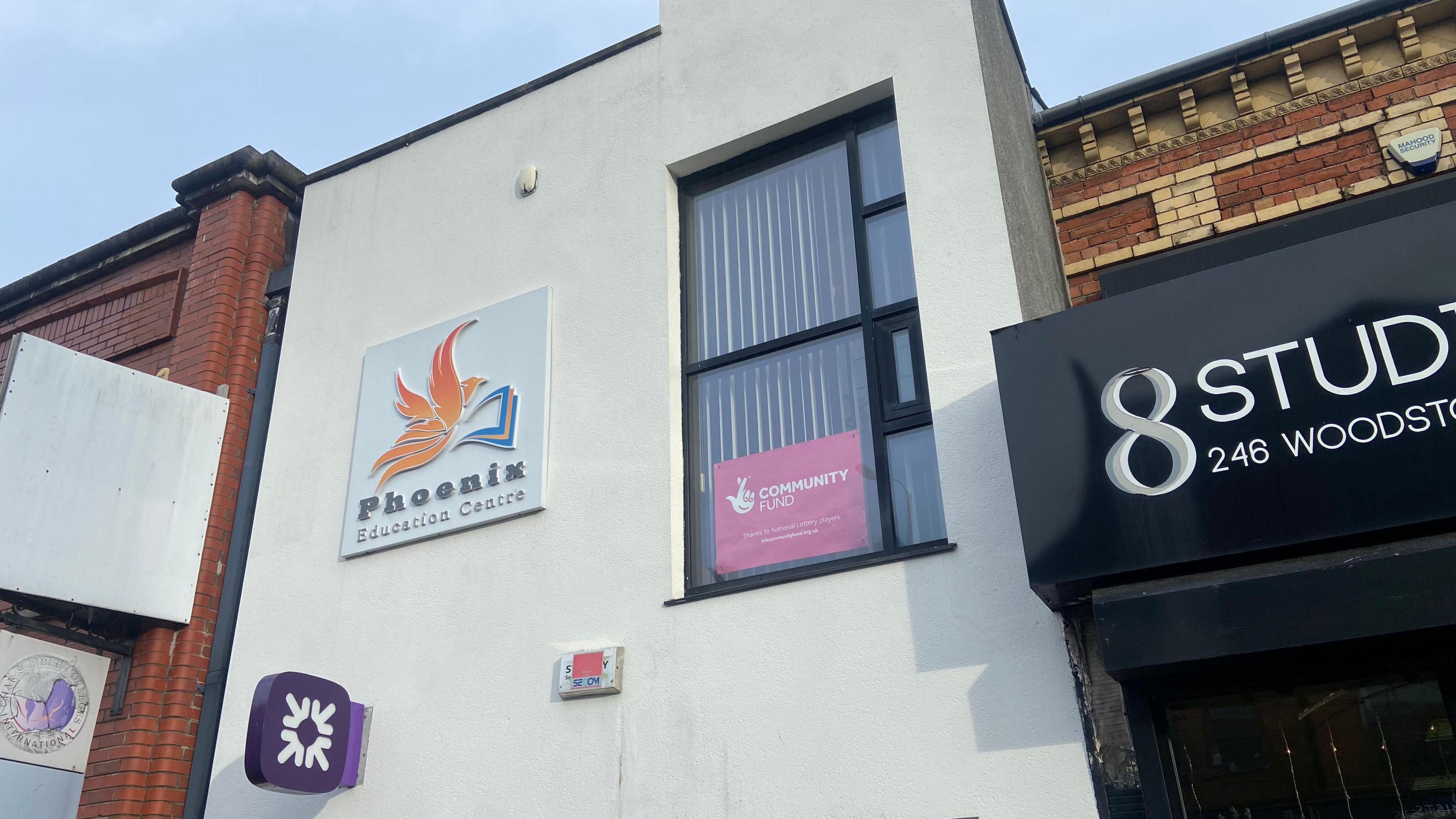
Phoenix Education Centre is based on the Woodstock Road in east Belfast
Victoria Black, 18, is among the young people who have found support and mentoring in Phoenix Education Centre, as well as education and training opportunities.
After leaving school at the start of her fourth year, Victoria said she lost out on a lot of opportunities but as soon as she joined Phoenix "all that changed".
She said poor mental health and anxiety meant she couldn't leave her house for two years.
Now, Victoria wants to be a youth worker due to the skills she has picked up while taking part in a different style of learning.
"It’s a lot more laid back than school but at the same time it’s actually easier and more comfortable for people who have really bad mental health and anxiety," Victoria said.
The centre provides a youth work based approach to education.
"You’re not as pressured and you’re not being told off if you do it the wrong way, if you make a mistake you’re not punished for it," said Victoria.
"You get to learn from your mistake.
"In Phoenix they actually take their time to explain it to one person at a time because some people don’t learn in the same way."
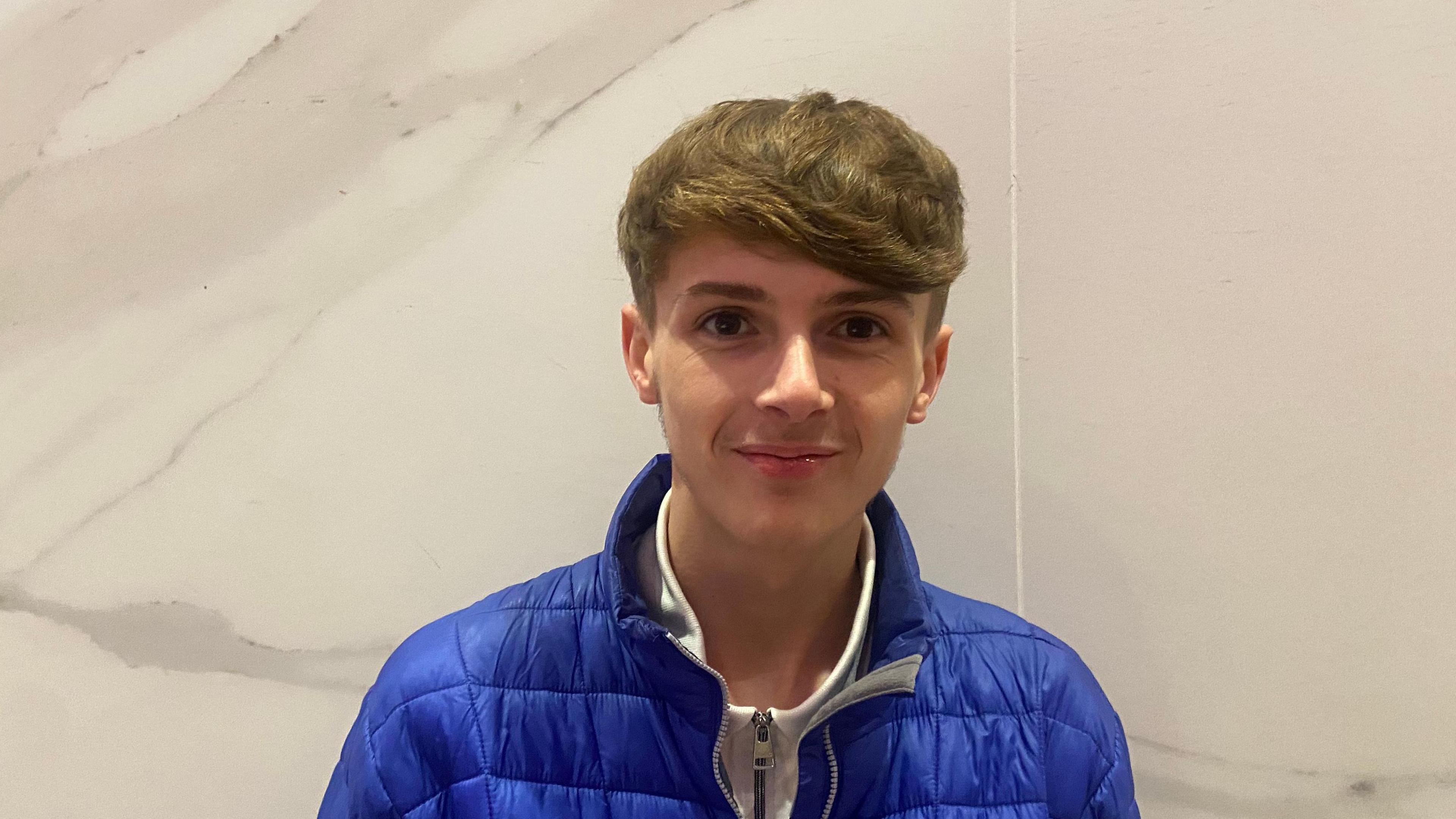
Cameron Connolly said the style of teaching at Phoenix suits him better
Cameron Connolly, 19, also had difficulty with mainstream education, particularly when doing GCSEs.
"When we were sitting at the desks with paper in front of us my mind just went blank, I didn’t know what to do."
However, Cameron says the style of teaching at Phoenix has helped him focus more and the environment is better suited to him.
"Phoenix suits me much better, it’s much more relaxed, they aren’t as strict and aren’t on your back constantly and they give you time.
"The community and the people around is just perfect, it’s keeping me out of trouble, keeping my head straight."
'School isn't for everyone'
Both Cameron and Victoria say that school isn't for everyone and that these centres can help others who struggle or fall out of mainstream education.
"I’m a lot more comfortable doing this than what I was in school," Victoria said.
She added that there should be a lot more centres like this as not all young people learn in the same way.
"I personally think their should be a change in educational roles in schools, it’s far too professionalised," said Victoria.
"Yes I understand they are trying to get you ready for work but, at the same time, they’re still only young people at the end of the day."
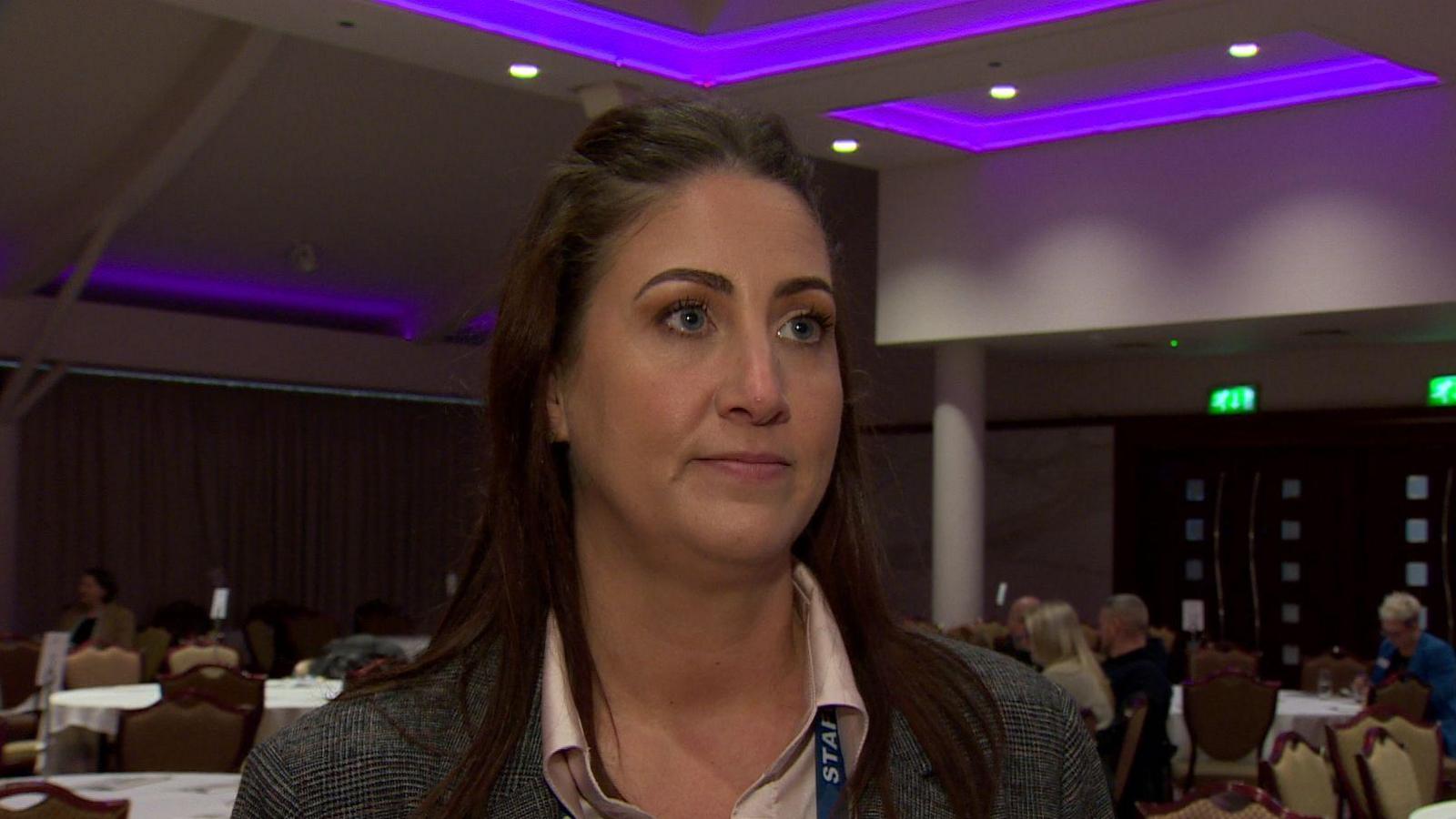
Founder and CEO of Phoenix Education Centre Emma Shaw said the legacy of the Troubles still impacts young people today
The chief executive of Phoenix Education Centre, Emma Shaw, said the long-standing educational underachievement in working class Protestant areas is a big concern.
"It’s a hugely complex societal problem but we need to work better together because if we really want people to have meaningful and engaged lives we need to start with education."
Ms Shaw said the legacy of the Troubles still impacts young people today.
"We still live in a post-conflict society and while we're living in a peaceful time at the moment, the legacy of the trauma, poverty, mental health issues, drug and alcohol dependency all impacts our young people.
"Every single young person that we’re working with either has special educational needs or mental health challenges or both. "
Related topics
- Published2 February 2023
